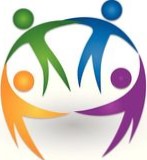In this episode from The Late Show with Steven Colbert, Julia Ioffe trenchantly reminds us that democracy is work.
What does she mean by that? Doesn’t she understand that democracy is guaranteed to us by the Constitution of the United States?
Our Constitution is a clever set of rules for managing a democratic nation which our Founding Fathers – Thomas Jefferson, George Washington, Benjamin Franklin, James Madison, Alexander Hamilton, et. al. – figured out and gave to us.
So isn’t the work all done? The Founding Fathers took care of all that, so now we get to enjoy democratic rights and freedoms simply by dint of living in the United States, isn’t that so?
Well, partly so. But like most other privileges we enjoy, we usually have to pay some dues along the way. For example, recall from your childhood, playing with other kids, the stress and drama around sharing and quarreling over toys. In my case, I played a lot of basketball as a youngster, and the most unwelcome figure on the court was the “ball hog”. Nothing would take the excitement out of a game more than a team mate who would habitually not pass the ball. The simple lesson is that privilege (i.e., having the ball passed to you or a toy shared with you) needs to be earned (i.e., by reciprocating generously). Every privilege we win in life is generally based on a corresponding set of additional responsibilities. This simple principle which we first began learning in early childhood carries on throughout our entire adult lives, and is also reflected in the privileges we enjoy by dint of membership in a particular social group (for example, a nation such as the United States of America). If the people don’t act responsibly, then the state won’t act responsibly (vis-a-vis other nations of the world), and the irresponsible (i.e. “rogue”) state will eventually be ostracized and will gradually crumble into ruin (even if it is nominally a “democratic” state). So when Julia Ioffe says democracy is work, I think she means that for a democratic state to sustain itself and continue to thrive in the world as a nation of free and independent people, every citizen should diligently examine the challenges facing the nation and act accordingly to help the nation meet those challenges. Free-riders betray the nation.
Julia attempts to break it down by rattling off a list of specific responsibilities, namely: vigilance, paying attention to current events going on in the world, being educated, being a savvy consumer of media and participating in civic life (e.g., by voting).
Of course these are all virtuous habits , but I believe she’s missing a key critical element, which I think John F. Kennedy nailed back in 1963 when he rallied the nation with the exhortation, “Ask not what your country can do for you; instead ask what you can do for your country.” JFK was appealing to our sense of patriotism. Patriots are people who will contribute (even sacrifice) something for the greater good of the nation. Patriotism is based on a strong sense of inclusion, solidarity and personal agency and empowerment. When people feel they have a personal stake in a bright future as a nation, we all strive for that future and naturally behave in ways that contribute to the collective good. However, when we lose our sense of inclusion and agency, we begin to feel like outsiders, and we naturally shift our priorities to “looking out for number one.”
Ioffe’s list of democracy-supporting behaviors only includes a single form of agency, which is voting. If we follow Ioffe’s simple recipe, we might easily fall into the trap of thinking that all we need to do is read a few newspapers, watch a few debates on television, cast our ballots and expect everything will be OK with our democracy. Actually, it takes much more effort than that. Ioffe is pointing in the right direction, but woefully understating the level of commitment required.
An important motivation for founding RAYA is that we were deeply frustrated by our lack of agency as patriotic Americans. We could not identify candidates for public office we believed would diligently and effectively represent our interests and the interests of the nation vis-a-vis the other nations of the world. If we continued our lifestyles simply as diligent voters, our hands would remain tied forever. On the other side of the coin, we have no appetite for running for public office, because it is evident to us that the vast majority of a public figure’s efforts and energy in today’s facile and sensationalist media environment must go toward polishing image and pandering to the fickle whims of a marginally engaged electorate. It’s too easy to parody U.S. politics as a professional sport with politicians playing the role of athletes. They form two teams, the Republicans and the Democrats. Each citizen is cast as a “fan” and is allowed to pick a side. The object of the game is to amass power and crush the opponent. Meanwhile, as a nation we neglect the real challenges of interacting and co-existing with the other nations and people of the world.
For a nation to succeed in the long run as a democracy, the citizens need be be “players”, not merely “fans.” The object of the game needs to be solving real problems that we face collectively as a nation (both internally and, significantly, beyond our national borders). Citizens need to be far-sighted creative thinkers who can imagine various scenarios of the future and collaboratively plan and act accordingly,to formulate and implement appropriate innovations and adaptations that will truly uphold (as opposed to “prop up”) and foster (a.k.a “earn”) our privileges of freedom and independence in a changing world. If we accomplish this Herculean task, other nations of the world will naturally follow our example. Now that is real work!
